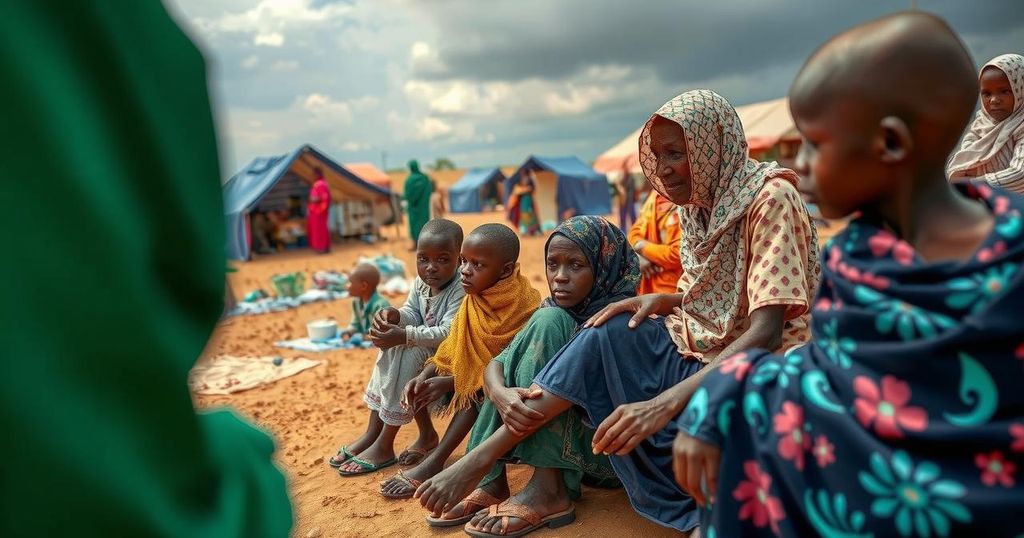The Dadaab Refugee Camp is experiencing a significant influx of Somali climate refugees due to devastating climate phenomena such as droughts and flooding. The Environmental Justice Foundation’s latest report links global warming to increasing displacement rates across the Horn of Africa, underscoring the urgent need for a cohesive international response to protect those most affected by climate change, particularly those who contribute the least to its causes.
The ongoing climate crisis has reached alarming new heights in the Dadaab Refugee Camp, where Somali climate refugees are confronting another wave of climate-related disasters. A recent report from the Environmental Justice Foundation (EJF) highlights the critical ties between global warming and the increasing plight of climate migrants in the Horn of Africa, particularly those fleeing devastating flooding in 2024. The report emphasizes that extreme weather events, exacerbated by climate change, have significantly boosted the rates of migration and displacement in the region. Between 2013 and 2023, the number of displaced individuals rose from an annual average of 23.6 million to 32.6 million in 2022, a stark reflection of the worsening conditions. The EJF document illustrates the catastrophic impact of climate disasters through personal narratives, showcasing the experiences of multi-generational climate refugees. It underscores the irony that those most affected by climate breakdown, such as Somali refugees, contribute minimally to carbon emissions, with Somalia’s per capita emissions considerably lower compared to more industrialized nations. The Dadaab camp, initially designed for 90,000 individuals, now houses over 320,000, as a consequence of the unprecedented influx of refugees due to persistent drought and conflict. The EJF team, visiting Dadaab in September 2022, documented testimonies from individuals who lost their livestock and crops, leading to their desperate search for safety. As of May 2023, more than 23.5 million people in the region faced severe food shortages, including 8.25 million in Somalia needing urgent assistance; tragically, 43,000 lives were lost during this period, predominantly among children. The report highlights the dire living conditions amid ongoing flooding and infectious disease outbreaks like measles and cholera, worsening the humanitarian crisis in the camp. Steve Trent, EJF CEO, criticizes the systemic negligence that fuels this suffering, advocating for immediate international action and legal recognition of climate refugees. Fardowsa Sirat Gele, a journalist, stresses the unfairness of the situation where those with minimal contributions to climate change bear the brunt of its consequences. The plea for a global response is urgent, with calls for enhanced protections for vulnerable populations amid a climate crisis that continues to escalate.
The topic of Somali climate refugees at the Dadaab Refugee Camp has emerged from the growing interconnections between climate change, migration, and humanitarian crises. Environmental instability in the Horn of Africa, particularly due to severe droughts and flooding, has displaced millions, leading to a surge in climate refugees. The EJF report sheds light on how anthropogenic climate change disproportionately impacts communities with minimal contributions to carbon emissions, highlighting the complex interplay of environmental degradation and human rights violations. The Dadaab camp has become emblematic of these challenges, underscoring critical gaps in global climate policy and refugee protection mechanisms.
The plight of Somali climate refugees in the Dadaab camp serves as a poignant reminder of the urgent need for global action against climate change and its cascading effects on human migration. With rising numbers of displaced individuals and worsening living conditions, the international community must prioritize the protection of climate refugees and take meaningful steps to address the root causes of climate-related disasters. Recognition and legal frameworks for climate refugees must be established, as the world confronts this unprecedented humanitarian challenge.
Original Source: ejfoundation.org






